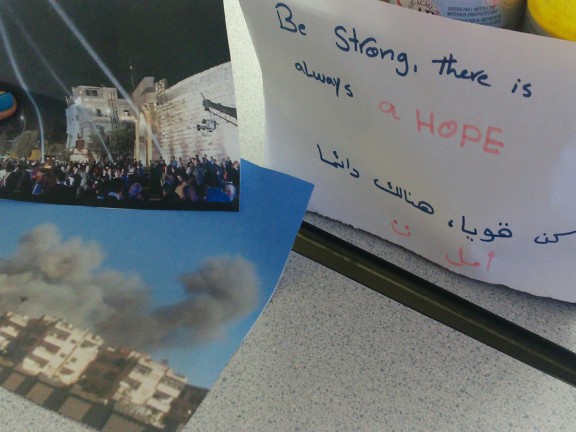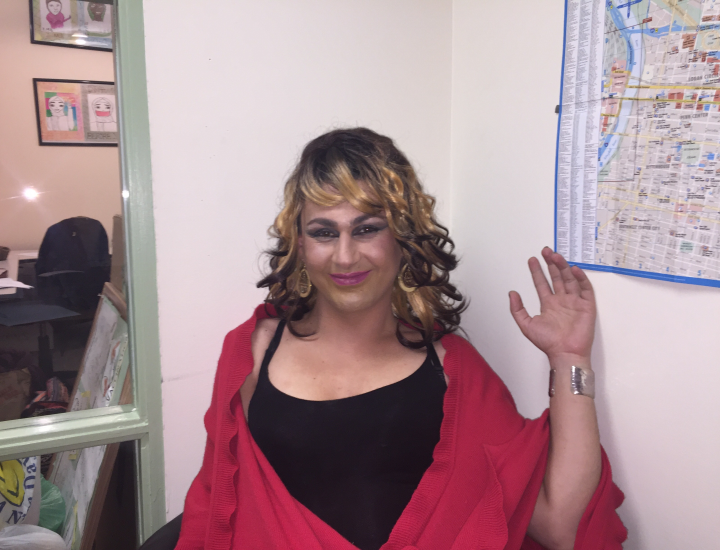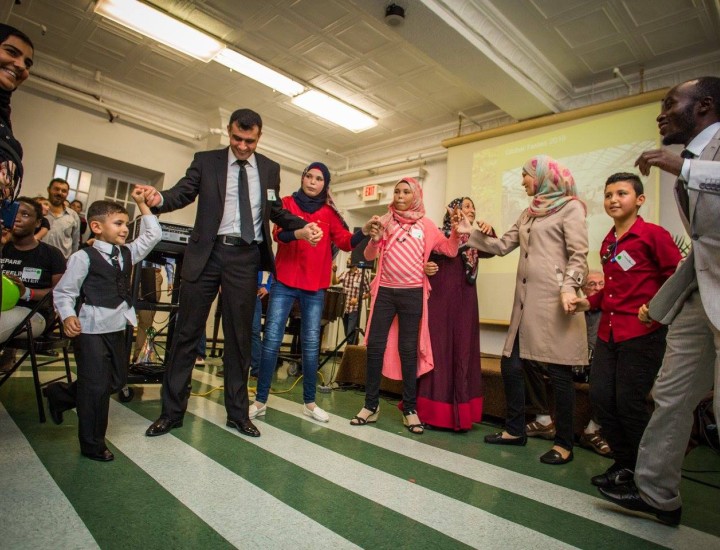A Positive Philosophy: Hope for Syria

Noor’s family is still in Syria, exposed to constant danger and threats. “When I called my dad the other day, I can hear it in his voice… he was terrified.
"Everything in my life was planned ahead of time with my family and my father was taking care of us emotionally and financially. He secured a job for me after graduation until we lost everything and we were forced to leave because of ISIS. I can still remember attending college back at home, enjoying walks together with my friends at night and feeling safe in the crowded streets of Damascus. I love to walk with my sister in the streets of old Philadelphia. It reminds me of the streets back in Syria. " - Noor, an NSC client from Syria
When ISIS started a Jihad against Christianity, Noor witnessed her house in Syria burn down. It was the house where she had lived, full of memories with her family. She was hiding in her Muslim neighbor’s house, when it happened, and she saw it consume with fire, with her very own eyes. ISIS targeted the family for being Christians and Noor says with sorrow and fear, “I will never forgive ISIS who destroyed our house and forced us to leave our family and our country."
"I’m trying really hard to go on with my life but there’s this constant feeling that something is missing.” Noor takes a moment to think about what she just said and shares that she is she still thinking of her family back home and what will happen to them. Noor’s family is still in Syria, exposed to constant danger and threats. “When I called my dad the other day, I can hear it in his voice… he was terrified because his friend was killed by ISIS at 8:00 am in broad daylight. It was in the middle of the street, in front of people, and no one was able to do anything This could happen to my father or my family at any day and at any time.”
Noor tried to apply for a visitor visa for her mother to come to Philadelphia recently, but was denied. An American family agreed on sponsoring the mother but after going through all the paperwork and costs, during the visa interview, she was rejected because she was Syrian. “I still feel confused by the contradictory nature of the US system and why my mother was not given the visa.”
The hardest part of living in US is that you need to depend on yourself and take care of everything in order to adjust to the new system here. “There’s are a lot of paper work you have to go through, lawyers are very expensive, and both me and my sister had to take care of all of that on our own in a foreign country, as we did not know about NSC at that time.”
Noor heard about NSC and PPR services from her lawyer who referred her. Noor’s first interaction with NSC was when she worked as a volunteer at the educational department at NSC and she originally thought of NSC as a good job opportunity. Noor did not know that NSC provided immigration services and that there is a specific program that can provide social services to asylum seekers like her. When she thinks about NSC, she says “I had not been guided and connected to the right directions and resources to adjust to my new life here in the US, but NSC and the PPR program became my guide."
Noor was surprised and overwhelmed by the wide support offered in different aspects including education, medical and employment, which she didn’t know she had access to. Noor says, “ I was impressed how the case manager and the NSC staff was able to offer these services within a short period of time. They also welcomed us with their friendly and warm smiles and tried to explain everything step by step to become familiar with the processes and systems here in US."
Noor described that this was the major turning point in her life where she had to start all over again from nothing. “No one knew that I am such a strong woman, I am even surprised at myself. In Syria, I didn’t realize how strong I was and how many things I was capable of doing. You have to be strong to be able to face everything. I have changed a lot since I came to US in 2013. Now, I have to work much harder than I ever have to barely cover my expenses and leave my house to get to work at 4:00 am," says Noor.
Noor’s philosophy is to be positive, always smile and take your time to solve your problems. Noor’s greatest struggle is being granted asylum and being able to bring her family here so that they all be together again and be safe. Noor says it is hard to be granted asylum here and US should bring more Syrian refugees as Syrians are still in continuous danger and facing the terrors of ISIS .”I’m still waiting to be scheduled for my asylum court interview and it has been two years. It’s waiting while you know your family is in constant danger that is the hardest. I wish US can help in bringing more Syrians and not to complicate the process as it is now."


